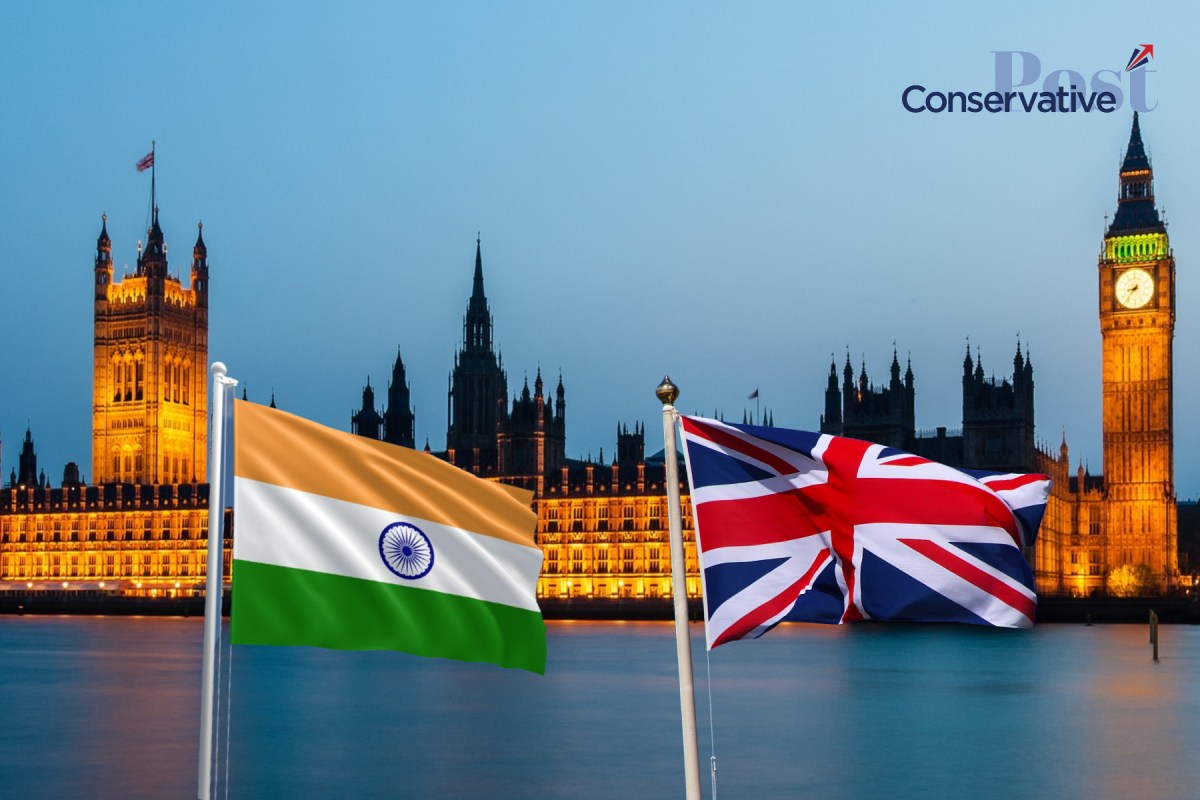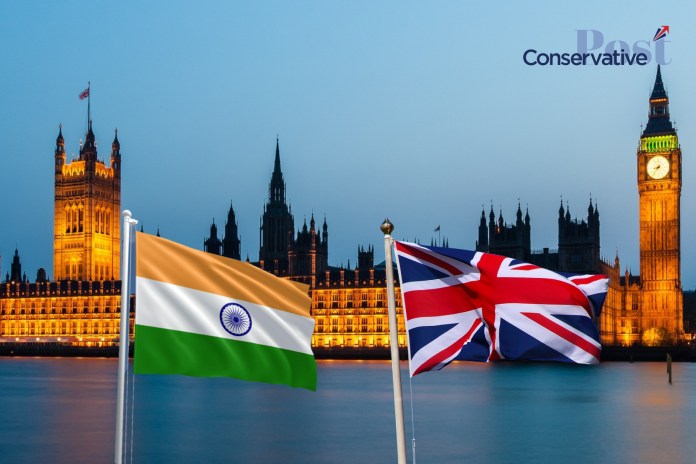The UK has today clinched another deal thanks to leaving the European Union – a “historic” Free Trade Agreement (FTA) with India, hailed by ministers as a £5billion-a-year economic booster.
After more than three years of complex negotiations spanning over 12 policy areas and over 45 sessions, the landmark deal will slash red tape, open up fast-growing markets, and usher in a new era of closer ties with the world’s most populous democracy.
The Department for Business and Trade declared it the “biggest and most economically significant” trade pact signed by Britain since Brexit.
India – a country long known for its staunch trade protectionism – has agreed to eliminate or reduce tariffs on 90 per cent of UK exports, with many duties tumbling to zero over the next decade.
Among the biggest winners is Britain’s iconic spirits industry. Tariffs on UK whisky and gin will plummet from a staggering 150 per cent to 70 per cent immediately, with further cuts to 40 per cent expected within ten years. Industry insiders are calling it a “once in a generation” breakthrough.
Meanwhile, Britain has reciprocated by cutting tariffs on Indian clothing and footwear – a longstanding demand from Delhi – in a move set to make high-street imports cheaper for UK consumers.
But in a controversial concession, Labour ministers also agreed to exempt Indian professionals working in the UK from paying national insurance contributions both in Britain and at home for up to three years – a decision critics say amounts to a capitulation.
Government sources were quick to defend the move, insisting that it does not signal any change in overall migration policy, stressing that the Home Office was closely involved in discussions and had made immigration a firm “red line”. However, we will wait to see the terms.
Official figures from Whitehall project that by 2040 the trade deal will:
- Boost UK economic growth by £4.8billion annually
- Increase bilateral trade by £25.5billion each year
- Raise British wages by £2.2billion a year
The EU, which has long struggled to finalise a meaningful agreement with India, has been left in the dust. Brussels has spent years trying – and failing to broker a similar deal.
In sharp contrast, post-Brexit Britain now celebrates a major diplomatic and economic win deepening ties with a fellow democracy and cementing its place in the Indo-Pacific, amid increasing concerns about Chinese influence in the region.
Former Prime Minister Boris Johnson and his Conservative government initiated the talks, laying the groundwork for the eventual agreement. While Labour is now claiming credit, much of the heavy lifting was done under the Tories.
The negotiations, which were largely concluded before the change in government, included detailed treaty text discussions – an intensive effort that is now paying dividends.
Trade experts say the deal will support hundreds of thousands of jobs and turbocharge sectors including whisky, automotive exports, digital services, and telecoms. British firms can expect greater access to one of the world’s fastest-growing consumer markets.
When Conservative Leader Kemi Badenoch was Trade Secretary, she said:
“SEAL HIGH QUALITY DEALS WITH INDIA AND CPTPP – THEY HAVE A COMBINED POPULATION OF NEARLY 2 BILLION CONSUMERS – OPENING EXCITING OPPORTUNITIES IN FAST-GROWING MARKETS FOR YEARS TO COME.
“THAT’S ESSENTIALLY A QUARTER OF THE WORLD’S POPULATION IN TWO HUGE DEALS, MEANING COMPANIES SUCH AS COVENTRY-BASED DRIVERLESS CAR MANUFACTURER, AURRIGO, COULD BENEFIT ON ITS EXPORTS TO HUGE MARKETS IN VIETNAM AND JAPAN.
“BUT I WANT TO BE CLEAR THAT JUST SIGNING ON THE DOTTED LINE IS NOT THE OBJECTIVE. THESE DEALS WILL ONLY BE AGREED IF THEY ARE THE RIGHT DEALS FOR THE PEOPLE OF THIS COUNTRY. BRINGING IN JOBS AND INVESTMENT TO LEFT-BEHIND COMMUNITIES AND CAPITALISING ON THOSE AREAS IN WHICH WE SPECIALISE.”
As more details emerge, questions are being raised about the full extent of Labour’s concessions. But for now, surely even the Remainers in Downing Street are basking in what is a vindication of Brexit Britain’s ability to go it alone – and win.
Like this:
Like Loading…

